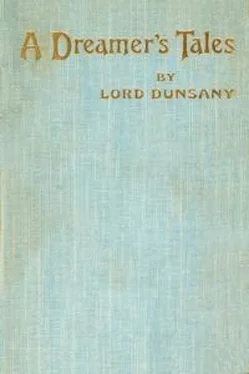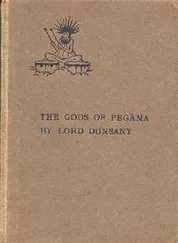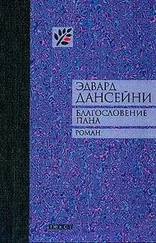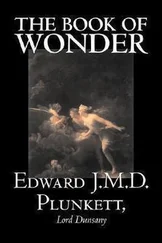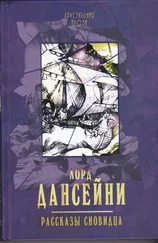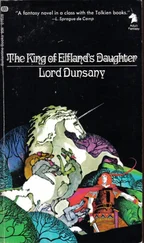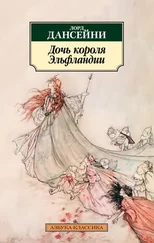Tall bent men were coming down the street arrayed in marvellous cloaks. All were sallow of skin and swarthy of hair, and the most of them wore strange beards. They were coming slowly, and they walked with staves, and their hands were out for alms.
All the beggars had come to town.
I would have given them a gold doubloon engraven with the towers of Castille, but I had no such coin. They did not seem the people to whom it were fitting to offer the same coin as one tendered for the use of a taxicab (O marvellous, ill–made word, surely the pass–word somewhere of some evil order). Some of them wore purple cloaks with wide green borders, and the border of green was a narrow strip with some, and some wore cloaks of old and faded red, and some wore violet cloaks, and none wore black. And they begged gracefully, as gods might beg for souls.
I stood by a lamp–post, and they came up to it, and one addressed it, calling the lamp–post brother, and said, “O lamp–post, our brother of the dark, are there many wrecks by thee in the tides of night? Sleep not, brother, sleep not. There were many wrecks an it were not for thee.”
It was strange: I had not thought of the majesty of the street lamp and his long watching over drifting men. But he was not beneath the notice of these cloaked strangers.
And then one murmured to the street: “Art thou weary, street? Yet a little longer they shall go up and down, and keep thee clad with tar and wooden bricks. Be patient, street. In a while the earthquake cometh.”
“Who are you?” people said. “And where do you come from?”
“Who may tell what we are,” they answered, “or whence we come?”
And one turned towards the smoke–stained houses, saying, “Blessed be the houses, because men dream therein.”
Then I perceived, what I had never thought, that all these staring houses were not alike, but different one from another, because they held different dreams.
And another turned to a tree that stood by the Green Park railings, saying, “Take comfort, tree, for the fields shall come again.”
And all the while the ugly smoke went upwards, the smoke that has stifled Romance and blackened the birds. This, I thought, they can neither praise nor bless. And when they saw it they raised their hands towards it, towards the thousand chimneys, saying, “Behold the smoke. The old coal–forests that have lain so long in the dark, and so long still, are dancing now and going back to the sun. Forget not Earth, O our brother, and we wish thee joy of the sun.”
It had rained, and a cheerless stream dropped down a dirty gutter. It had come from heaps of refuse, foul and forgotten; it had gathered upon its way things that were derelict, and went to sombre drains unknown to man or the sun. It was this sullen stream as much as all other causes that had made me say in my heart that the town was vile, that Beauty was dead in it, and Romance fled.
Even this thing they blessed. And one that wore a purple cloak with broad green border, said, “Brother, be hopeful yet, for thou shalt surely come at last to the delectable Sea, and meet the heaving, huge, and travelled ships, and rejoice by isles that know the golden sun.” Even thus they blessed the gutter, and I felt no whim to mock.
And the people that went by, in their black unseemly coats and their misshapen, monstrous, shiny hats, the beggars also blessed. And one of them said to one of these dark citizens: “O twin of Night himself, with thy specks of white at wrists and neck like to Night’s scattered stars. How fearfully thou dost veil with black thy hid, unguessed desires. They are deep thoughts in thee that they will not frolic with colour, that they say ‘No’ to purple, and to lovely green ‘Begone.’ Thou hast wild fancies that they must needs be tamed with black, and terrible imaginings that they must be hidden thus. Has thy soul dreams of the angels, and of the walls of faëry that thou has guarded it so utterly, lest it dazzle astonished eyes? Even so God hid the diamond deep down in miles of clay.
“The wonder of thee is not marred by mirth.
“Behold thou art very secret.
“Be wonderful. Be full of mystery.”
Silently the man in the black frock–coat passed on. And I came to understand when the purple beggar had spoken, that the dark citizen had trafficked perhaps with Ind, that in his heart were strange and dumb ambitions: that his dumbness was founded by solemn rite on the roots of ancient tradition: that it might be overcome one day by a cheer in the street or by some one singing a song, and that when this shopman spoke there might come clefts in the world and people peering over at the abyss.
Then turning towards Green Park, where as yet Spring was not, the beggars stretched out their hands, and looking at the frozen grass and the yet unbudding trees they, chanting all together, prophesied daffodils.
A motor omnibus came down the street, nearly running over some of the dogs that were barking ferociously still. It was sounding its horn noisily.
And the vision went then.
In a Letter From a Friend Whom I Have Never Seen, One of Those That Read My Books, This Line Was Quoted—“but He, He Never Came to Carcassonne.” I Do Not Know the Origin of the Line, but I Made This Tale About It.
When Camorak reigned at Arn, and the world was fairer, he gave a festival to all the Weald to commemorate the splendour of his youth.
They say that his house at Arn was huge and high, and its ceiling painted blue; and when evening fell men would climb up by ladders and light the scores of candles hanging from slender chains. And they say, too, that sometimes a cloud would come, and pour in through the top of one of the oriel windows, and it would come over the edge of the stonework as the sea–mist comes over a sheer cliff’s shaven lip where an old wind has blown for ever and ever (he has swept away thousands of leaves and thousands of centuries, they are all one to him, he owes no allegiance to Time.) And the cloud would re–shape itself in the hall’s lofty vault and drift on through it slowly, and out to the sky again through another window. And from its shape the knights in Camorak’s hall would prophesy the battles and sieges of the next season of war. They say of the hall of Camorak at Arn that there hath been none like it in any land, and foretell that there will be never.
Hither had come in the folk of the Weald from sheepfold and from forest, revolving slow thoughts of food, and shelter, and love, and they sat down wondering in that famous hall; and therein also were seated the men of Arn, the town that clustered round the King’s high house, and was all roofed with the red, maternal earth.
If old songs may be trusted, it was a marvellous hall.
Many who sat there could only have seen it distantly before, a clear shape in the landscape, but smaller than a hill. Now they beheld along the wall the weapons of Camorak’s men, of which already the lute–players made songs, and tales were told at evening in the byres. There they descried the shield of Camorak that had gone to and fro across so many battles, and the sharp but dinted edges of his sword; there were the weapons of Gadriol the Leal, and Norn, and Athoric of the Sleety Sword, Heriel the Wild, Yarold, and Thanga of Esk, their arms hung evenly all round the hall, low where a man could reach them; and in the place of honour in the midst, between the arms of Camorak and of Gadriol the Leal, hung the harp of Arleon. And of all the weapons hanging on those walls none were more calamitous to Camorak’s foes than was the harp of Arleon. For to a man that goes up against a strong place on foot, pleasant indeed is the twang and jolt of some fearful engine of war that his fellow–warriors are working behind him, from which huge rocks go sighing over his head and plunge among his foes; and pleasant to a warrior in the wavering fight are the swift commands of his King, and a joy to him are his comrades’ distant cheers exulting suddenly at a turn of the war. All this and more was the harp to Camorak’s men; for not only would it cheer his warriors on, but many a time would Arleon of the Harp strike wild amazement into opposing hosts by some rapturous prophecy suddenly shouted out while his hand swept over the roaring strings. Moreover, no war was ever declared till Camorak and his men had listened long to the harp, and were elate with the music and mad against peace. Once Arleon, for the sake of a rhyme, had made war upon Estabonn; and an evil king was overthrown, and honour and glory won; from such queer motives does good sometimes accrue.
Читать дальше
